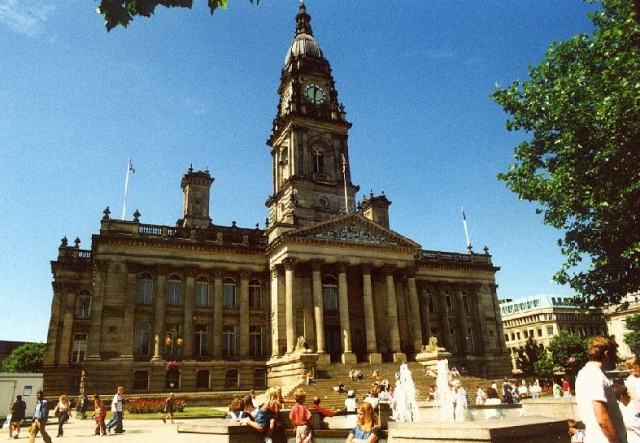Bolton Branch History
Branch History

The Bolton Branch of the Historical Association, having been founded in 1927, celebrated its 80th birthday suitably spectacularly in October 2007. Not only did it have, for the occasion, a distinguished Chief Guest as visiting lecturer, and an audience of nearly 200, but it also had a large, decorative and delicious birthday cake to be ceremonially cut, distributed and enjoyed. Only when that ceremony had been completed could our Chief Guest, Professor Sir Ian Kershaw, who had actually cut the cake, proceed with his lecture.
The Branch was originally very much rooted in Bolton School. Its meetings were held there. Richard Poskitt, the Branch President for 33 years, from 1933 to 1966, was also Headmaster of Bolton School (Boys' Division). His successor as President, David Baggley, was his successor as Headmaster. Both were Cambridge History graduates. In due course David Baggley was succeeded by the former Senior History Master of Bolton School, the redoubtable William E. Brown. From 1987, the President (and Chairman) has been an Oxford History graduate and Burnley Headmaster, David Clayton, who is nevertheless also an Old Boy of Bolton School. Interestingly, however, in 2008-9, the Branch is about to leave the Bolton School premises and base itself instead in the Bolton Parish Hall (a former Victorian grammar school building in the centre of the town).
Over the years many of the officers and committee members have been members of the teaching profession. There were, however, some significant exceptions, among them a pillar of local government, Alderman Harry Lucas, a distinctive Chief Education Officer, Mr W.T. Selley, and an Editor of the Bolton Evening News, Mr J.M. Hope. In the 1990s, a lawyer, a former Deputy Town Clerk, Mr David Hoggins, became Branch Secretary, and from the early 1980s and up to date, another lawyer, Mr Geoffrey Berry, has been a watchful and purposeful Treasurer. But the Secretary in the 1950s and early 60s, Mr John (J.H.D.) Bate was Senior History Master at the County Grammar School, and the resolute and exceptionally efficient Treasurer at that time, Miss Lois Basnett, was both an influential History teacher in Westhoughton and also THE authority on the origins and early years of the Bolton to Leigh Railway (1824-28). Miss M.V. Wood, Senior History Mistress at Canon Slade Grammar School, was a formidable Vice-President in the 1960s, 70s and 80s. Three Branch Secretaries in the period 1968-1989, Mrs. Elizabeth Tatman, Mrs. Margaret Nelson and Mrs. Julie Hollis, had close links with the teaching profession, and indeed the last of these is now a Headmistress in Oldham. The two most recent Secretaries, Mrs Ann Green and the current Secretary, the dynamic and creative Mrs Jennifer Hyde, have both been teachers.
The high quality of the lecture programme throughout the life of the Branch has been an outstanding characteristic, providing, as it has, insights, stimulus and delight both for the teachers and for the so-called "leisure historians" in the audience. Audiences have risen, season after season, to average sizes in the 40s and 50s. Visiting lecturers over the years have included several major academic figures: Professor A.R. Myers (when National President of the Association), Professor Christopher Brooke, Mr Christopher Hill (when Master of Balliol), Professor R.H.C. Davis, Professor Henry Mayr-Harting, Professor Conrad (Earl) Russell, Professor Denys Hay (when President of the Association), Professor C.L. Mowat, Mrs Irene Collins (Association President and a visitor three times over), Professor Woolrych, Professor Aylmer, and, more recently, Professor John Fines (Association President), Professor Michael Biddiss (Association President), Professor Chris Wrigley (Association President), Professor Malcolm Crook, Professor Norman Davies, Professor Peter Hennessy and Professor Sir Ian Kershaw (a visitor twice). In recent years lecturers have been happily rewarded after their visit by being made honorary (and informal) members of the Branch, entitled to receive copies of future programmes, and welcome to return on any subsequent occasion. Some have gladly taken advantage of this.
During the 1950s, 60s and 70s the Branch provided an additional and useful service not only to History teachers but also to their pupils. Several years before the universities began to do this directly themselves, the Branch organised annual conferences in the Bolton School lecture theatre for sixth formers from all the schools and colleges in the Bolton-Bury-Rochdale region, at which university academics spoke on and answered questions on typical A-level topics and also on essay-writing techniques. So successful were these that the Branch began equally effective conferences at the Hayward School for senior secondary modern pupils from all the appropriate Bolton schools.
Another particularly prominent feature of Branch life in the 1950s, 60s and 70s was the extent, vigour and popularity of social events. These included formal annual dinners and annual dances, plus evening excursions to local houses, castles and museums, and weekend excursions to more distant parts. There was even a separate excursions secretary. Places visited included York, the Scottish Borders, Warwick and Kenilworth, Ludlow, St Albans and Stamford. While the changing pattern of car ownership has meant a virtual disappearance of coach trips of this sort, and even of car-pooling, it is pleasing to be able to report the survival and, indeed, the thriving of specific social gatherings during each HA year, involving musical, or words and music entertainment evenings, and celebrations of Christmas or HA anniversaries or local history research.
The Branch programme is currently distinctly lively, and members are encouraged to stay for tea, coffee and biscuits at the end of formalities, and to chat both about the subject of a lecture and its subsequent question-and-answer session and about other local events and cultural activities. Attendances remain as high as they have ever been. There are now normally six formal academic lectures in the period early October to early March, plus the AGM in September, a social event in mid to late April and the Local History celebration in May. We hope that the move to our new town-centre location sees the Branch flourishing for another 80 and more years at least.

